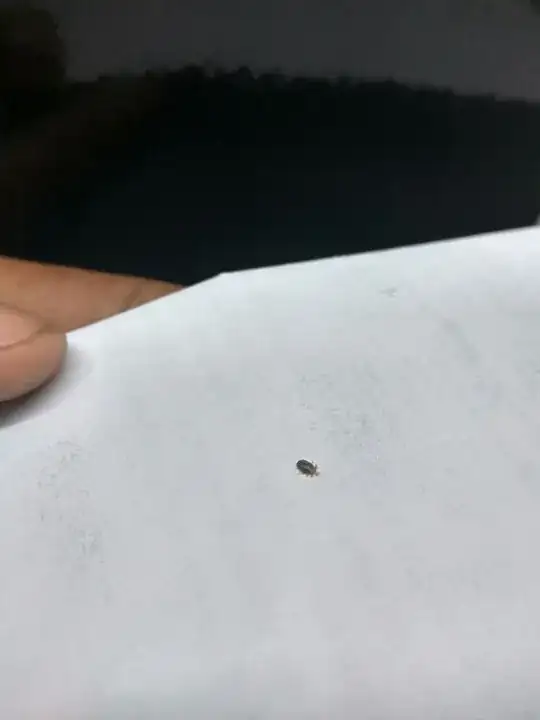He's likely anxious because he doesn't know what is going on. He might also be taking his cues from you if you are worrying while removing them. Keep breathing. Talk to him in a reassuring voice. Take breaks in between removals. Give him affection (rather than treats) and move slowly. Check him thoroughly all over - there's nowhere they won't settle in for a meal. Check the ears, in between toes, his butthole: all of him.
You might consider something like a "tick twister." For what it is worth, I've lived with outdoor dogs and tick checks were a daily routine. Tweezers can work, but if the ticks are large enough, I just pull them by hand. You do want to make sure that you completely get the entire head out, otherwise the skin can get infected.
Note that there are "Deer ticks" and "Dog ticks". "Deer ticks" are the smaller ones with the red pouches. "Dog ticks" are the bigger ones with dark brown pouches that have a white marking. Here's a guide for telling which kind.
Deer ticks are the ones that carry lyme disease, so be wary and wash your hands and instruments after getting rid of them. I am told by vets and my doctors that to get lime disease from a tick, it usually needs to be attached to a human for 48-72 hours. A bite does not mean you've gotten lime disease, but it pays to be safe!
Your vet should be able to tell you when it is usually "tick season" in your area. I've always noticed them more of a problem right after it rains and the ground is wet. They'll crawl up onto long blades of grass and hop on passers-by.
Lastly, it'd be good to check in with your vet about puppy shampoo, something for the skin where be was bit, and, puppy approved tick repellant options. Lyme disease in dogs is also an issue, so do check in with your vet regarding what to be wary of such as lameness, fever, lethargy, and enlarged lymph nodes. As I understand tho, a deer tick with Lyme disease needs to be attached to the dog for 48hrs for the transmission of the disease.
I don't know that your dog is necessarily in pain from the bites. A tick bite does hurt when they bite a human. It can be a sharp pain, but some people don't notice. Dogs have very different skin than humans too, but, no matter what, consult your vet about remediation, prevention and detecting lyme disease and how to avoid ticks in the future. Hope your puppy feels better soon!
